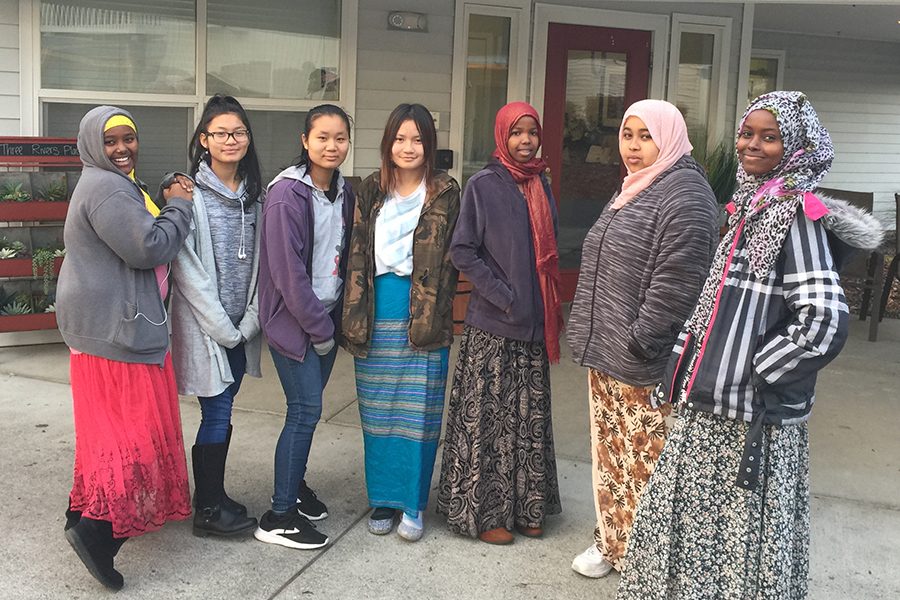
United Way launches annual campaign, census outreach
United Way of Benton and Franklin Counties is kickstarting
its annual fundraising campaign in September.
And it is armed with hard data showing where the two
counties it serves are falling behind.
Last year, United Way recruited a group of volunteer
analysts to identify key data points in hopes of measuring the overall health
and safety—or areas of greatest need—in the community, like health, financial
stability, basic needs, and childhood and youth success.
The results serve as a community report card and way to
allocate dollars and prioritize funding to nonprofits working in those areas.
For example, 44 percent of students meet fourth-grade
math standards, which is worse than the statewide average, and 42 percent
of total youths arrested per 1,000 youths were ages 10-17.
“If you look at these
indicators, the more red lights we see are in children and youth,” said LoAnn
Ayers, president and chief executive officer of the Kennewick-based United Way.
“That doesn’t speak well for future employees, future customers and future
voters.”
And the need is great. United Way only has $1 to give for
every $3 requested.
“We have more need than money,” Ayers said.
She said issues like hunger, homelessness and mental health
do not appear in the report card because there are no publicly available data
sources measuring those things—but there is still a need.
“Public health and safety systems are reporting these things
are a problem, but we don’t have a good way of measuring it,” Ayers said.
Ayers said United Way’s mission is simple—to use people’s
donations to fill critical funding gaps in local services.
“We’re like an investment firm for people’s philanthropy,”
she said.
United Way operates with 30 board members, a staff of 12,
and an annual operating budget of $677,000.
Last year it raised $3.1 million, which was slightly down
from 2017, due to corporate changeovers from some of its biggest health care
donors. This year, the goal is to meet or beat last year’s numbers.
Ayers is worried that an upcoming presidential election
might hinder efforts.
“Hanford contractors may change. Philanthropy really depends
on employee confidence, if they are worried about their job, they don’t give,”
Ayers said.
Last year’s campaign funded 23 local agencies and 38
programs helping more than 58,000 people in Benton and Franklin counties
through two-year community impact grants.
More than 40 percent of the money raised goes to the
programs in the areas of greatest need, while 43 percent represents money
donors designate to one or more specific nonprofits.
The current funding cycle runs through June 2020. Requests
for proposals for the upcoming two-year cycle open in January.
United Way helped fund projects such as Senior Life
Resources’ Meals on Wheels for Those Under 60 program, housing assistance for
Domestic Violence Services, refugee high school support provided by the Family
Learning Center and Benton Franklin Head Start’s school readiness program.
“Many of our high school girls want to become nurses, so we
took them to visit Nalina (DeLaMora) at Three Rivers Place to learn about
working in an assisted living facility,” said a staff member at the Family
Learning Center, who asked not to be named.
“Nalina shared about her journey to her current job as the
marketing director for the facility. She worked as a home care aide while
working on her bachelor’s degree in college. Nalina was a great example for our
girls, helping them better understand the work opportunities in the U.S.”
This year, United Way set aside 10 percent of its total
pool of donations to small nonprofits that may not have the means or budget to
perform an audit on their finances but are still doing great work. An example
of that is Therapeutic Riding for the Tri-Cities, which used money from United
Way to buy a horse simulator for clients who aren’t physically able to get on a
real horse.
One of United Way’s flagship programs, Attendance Matters,
aims to reduce absenteeism at local schools. Through the Lunch Buddy program,
it pairs local mentors with students with high rates of absenteeism.
Ayers said there’s a need for more volunteers.
A push for a complete census
United Way will spearhead efforts to get a complete count
for the 2020 census. The agency applied for and recently received a $40,000
grant from the Washington Census Equity Fund to work on outreach, communication
and training.
“Federal dollars are driven by census counts. In 2010, we
were 25 percent to 27 percent undercounted. We looked a lot smaller
to funding sources,” Ayers said.
That percentage is expected to improve with intervention and
a public awareness campaign.
United
Way will use the grant money to create public service announcements and
multimedia campaigns to equip employers, pastors and leaders with the tools
they need to educate. It also hopes to plan events to allow census takers to
reach the homeless population.
The Tri-Cities Counts committee launches this month.
Fears concerning identity theft, a growing immigrant
population, limited access to technology, shorter attention spans and distrust
of the government could prevent people from filling out the census.
“The hardest to count are families of young children, those
with limited language and education, and people who are refugees and
immigrants,” Ayers said.
The state Office of Financial Management estimates that for
every person not counted in the 2020 census, the state would lose nearly $2,000
per person per year in federal program funding.
“If you’re an individual, or family, that affects Pell
Grants, free and reduced lunch, WIC (a federal nutrition program for women,
infants, and children) and SNAP (federal Supplemental Nutrition Assistance
Program), and public housing. For business that could mean less money for
public infrastructure and transportation, and business loans,” Ayers said.
“We’re going to continue to grow, but have less access to
money. It’s super important that people understand that,” Ayers added.
United Way of Benton and Franklin Counties: 401 N. Young St., Kennewick; 509-783-4102; unitedway-bfco.com; Facebook.
